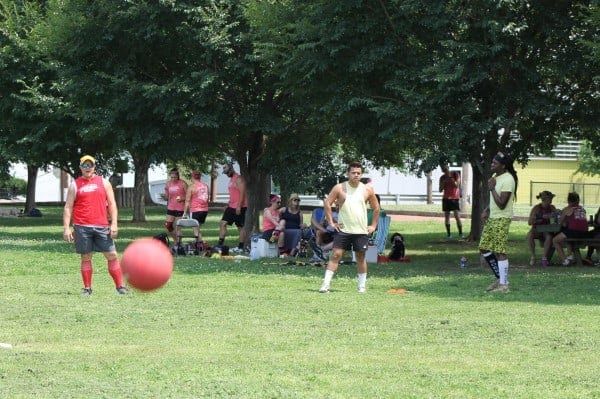Ben Folds, a hugely popular Nashville-based pianist and performer, has developed a devoted, enthusiastic following thanks to his catchy, well-wrought songs, his humor and his exuberant stage persona. Later in September, Folds is scheduled to release his much-awaited new album, Way to Normal, which marks his first studio recording in three years.
For this Sunday night concert, marking the debut of Folds with the Nashville Symphony, the program begins with Resident Conductor Albert-George Schram leading the orchestra in Howard Hansonís ''Maypole Dances'' from Merry Mount; Camille Saint-SaÎns "Bacchanale" from Samson and Delilah; and tributes to Stephen Foster and the Beatles. The tribute to Foster, the celebrated 19th-century American songwriter, includes ''Dear Friends and Gentle Hearts,'' ''I Dream of Jeannie with the Light Brown Hair'' and his well-known ''Camptown Races.'' The Beatles tribute, arranged by Bruce Healey, is titled ''Love Is All You Need.'' After intermission, Folds takes the stage to perform his hits as well as selections from the new album, newly arranged for orchestra.
O&AN: Having long been a successful pop musician, recording artist and producer, what attracts you most to performing with a symphony orchestra in a setting very unlike what you usually work within?
Ben Folds: I really think that orchestras are amazing institutions but they are really starting to atrophy across the nation and funding support worldwide is really starting to go away. In recent years symphony orchestras are struggling to survive and remain relevant and I really applaud that. So, for one night I will be the equivalent of the wet t-shirt contest for the symphony. I've been doing orchestra shows for a few years now and it has become a constantly evolving work in progress. When I first went into it I knew that I wanted to make a commitment out of it so the scores are almost constantly being revised and reimagined. The orchestra becomes the rock band for the night which really was the original goal when i first set out to do this. I don't really get a lot of practice time with them but that is just the nature of what we are doing and the orchestras are really set up to do it and make it work.
O&AN: What would you say is the biggest challenge for you in performing with a symphony orchestra accompaniment as opposed to performing with a traditional rock band?
BF: They are very different but kind of the same too. You are really doing the same thing but playing with a completely different set of tools. It can be really difficult if you are really used to playing on stage in rock time. I grew up playing with orchestras so it is a bit easier for me than most because I was already accustomed to following the conductor and all of that other weird anticipation that you have to do. This is different even than that though because the soloist is in front of the conductor with his back to him so the conductor is really following the soloist. So he's trying to bring 90 people up to speed and by the time they play it and I'm 40 feet away from the percussion section I just really can't use my ears any more. For a rock writer my songs are written to work well with orchestra accompaniment so that is a definite plus. It's really nice to get to hear them really soar instead of hearing a rock band fu** them up all the time.
O&AN: After three long years without a record you will be releasing Way to Normal on September 30. What was your chief goal when you set out to record this album?
BF: Really, most of the time I don't know what I'm doing when I go into the studio. I can't speak for other people but I can't say that I really go into the studio with a policy or a real mission statement that I'm consciously going for, though on some deeper level there may be. If there really was a conscious goal it would just be to kick ass. Our live shows have been very energetic and very solid and I found myself regretting that I hadn't been able to pull off that kind of energy on a record. I guess I just wanted to rock.
O&AN: Looking back over the past decade you have a solid reputation as a songwriter, performer and producer and to many you have become something of a pop and rock music icon. Considering your humble beginnings, how does it feel to have gained such high regard from your peers and the world at large?
BF: It's funny because my humble beginnings were much more cocky that anything I could possibly feel about it these days. I'm just really thankful that I have a job. I watched many of my peers over the last decade who I had a lot of respect for fall off the horse and I'm sure many of them are still doing well in other areas but every time I put out a record and I look around and think "I'm still here." This business is set up to be disappointed in and it can be really heartbreaking because everyone you work with is trying so hard to succeed so I'm really happy to still be working.
